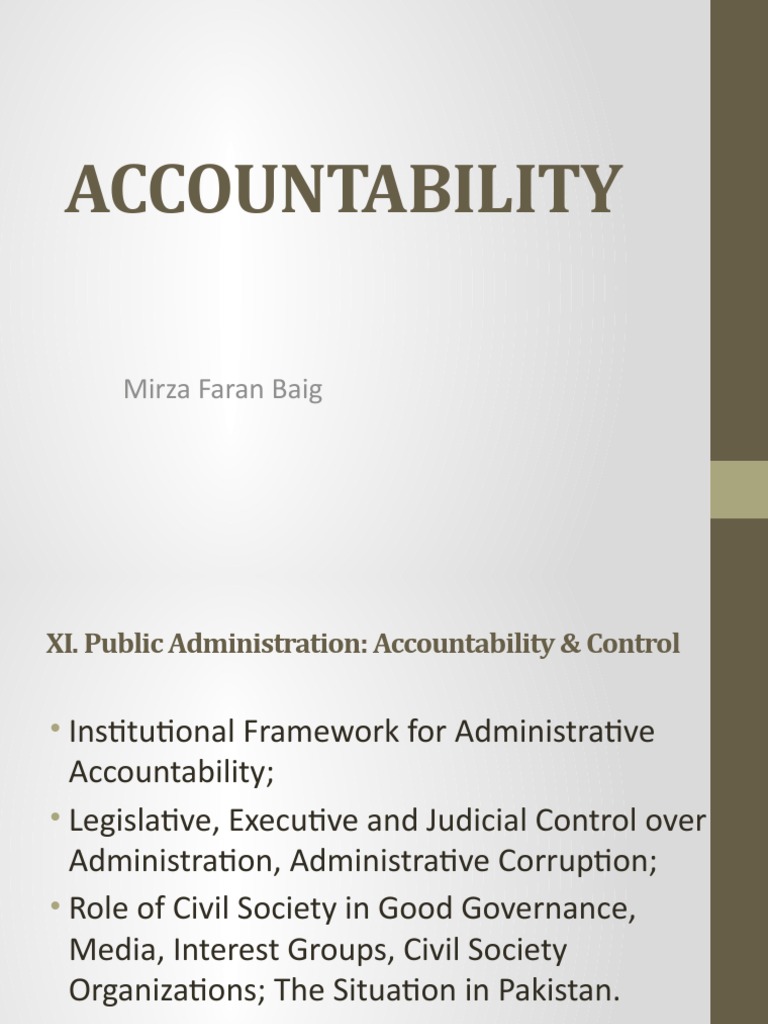In the intricate tapestry of human existence, the Bahá’í teachings offer an illuminating lens through which we can examine the dual concepts of accountability and forgiveness—two essential threads that, when woven together, form a holistic understanding of justice. These principles are not merely theological constructs but are practical imperatives meant to guide the behavior of individuals and communities alike, engendering a societal foundation that embodies equity, harmony, and profound interconnectedness.
Accountability in the Bahá’í context transcends mere responsibility; it encompasses an innate recognition of the interdependencies between individuals within a community. Each person, as a constituent of a greater whole, is called to acknowledge and address their contributions, both positive and negative, to the collective fabric. Here lies a powerful metaphor: envision a vast ecosystem in which every organism plays a crucial role. Just as a single tree can impact the health of an entire forest, an individual’s actions reverberate through the community, influencing the well-being of all.
Moreover, accountability invites a commitment to transparency and self-reflection. The teachings exhort individuals to scrutinize their motives and behaviors, fostering an atmosphere where honesty is not only encouraged but celebrated. Bahá’í principles advocate for an introspective approach, urging adherents to engage in continual self-assessment, thus ensuring that their actions align harmoniously with their values. In this manner, accountability is transformed from a cumbersome responsibility into an opportunity for growth and enlightenment.
Yet, the pursuit of justice cannot be complete without the reciprocal concept of forgiveness. This notion, integral to human experience, serves as a counterbalance to accountability, providing a pathway for healing and reconciliation within the context of interpersonal relationships. Forgiveness, as depicted in Bahá’í teachings, is not an unwarranted absolution of fault but rather a conscious decision to release the burden of resentment and hostility. It is akin to the fresh rain nourishing a parched land, revitalizing relationships that have withered under the weight of unaddressed grievances.
The interconnectedness of accountability and forgiveness manifests vividly within the community. As individuals acknowledge their shortcomings and take responsibility for their actions, the heavy burden of guilt may linger, suffocating the potential for growth. In these moments, forgiveness acts as a catalyst, liberating individuals from the shackles of their past, allowing them to emerge anew, reinvigorated and ready to contribute positively to social cohesion.
Furthermore, the Bahá’í teachings articulate that true justice is not merely retributive but restorative. The justice system, ideally, should aim to rehabilitate rather than punish. Herein lies another instance of an intricate metaphor: consider a sculptor deftly chipping away at a block of marble. Rather than obliterating the faults, they gradually reveal the beauty that lies within. This process represents the journey of individuals who have erred and are given the opportunity to learn and grow, fostering a culture where accountability and forgiveness intertwine seamlessly.
For accountability and forgiveness to flourish, a nurturing environment must be cultivated. This necessitates the establishment of community practices that uphold these values at their core. Actively integrating processes such as restorative justice circles enables members to express grievances openly while also fostering a culture of mutual respect and understanding. Such dialogues pave the way for accountability to be embraced not as a punitive measure but as a communal responsibility, leading to an empowered populace capable of transformative conversations.
In addition, the importance of education in this paradigm cannot be overstated. Instilling young Bahá’í adherents with the principles of accountability and forgiveness from an early age can cultivate a generation that inherently seeks justice not as an endpoint but as an evolving journey. Schools can serve as microcosms of this ideal environment, where students learn to navigate conflicts with the same maturity and grace that the teachings advocate.
Lest we overlook the profound personal implications of these teachings, the individual journey of mastering accountability and embracing forgiveness is arguably one of the most challenging yet rewarding endeavors one can undertake. It demands a certain level of vulnerability, courage, and honesty. Fostering resilience in the face of adversity is not merely an individualistic pursuit; it contributes to the collective empowerment of an entire community.
In the delicate balance of accountability and forgiveness, a significant truth emerges: justice is an ongoing dialogue rather than a static condition. When individuals commit to the practice of holding themselves accountable while simultaneously engaging in the art of forgiveness, they create a robust framework for justice that reverberates through society, bridging chasms of misunderstanding and animosity.
In conclusion, the Bahá’í teachings on accountability and forgiveness illuminate not only the necessary components of justice but also the profundity of human relationships. They invite individuals to participate in a larger narrative where every action reverberates, every voice matters, and every heart can heal. In embracing these dual principles, we are empowered to build a world that honors both justice and compassion—two indispensable pillars upon which a harmonious society stands.
